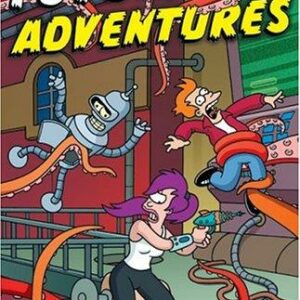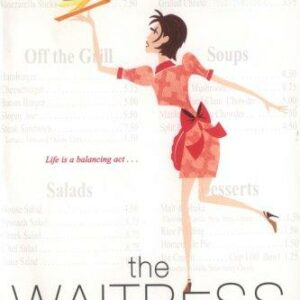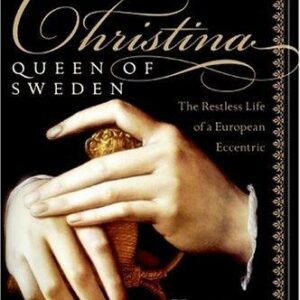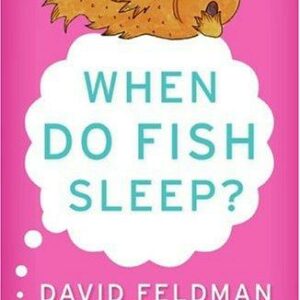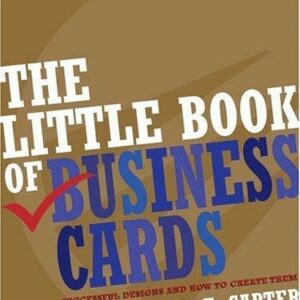Murder on Cold Street
$17.00
| Title | Range | Discount |
|---|---|---|
| Trade Discount | 5 + | 25% |
- Description
- Additional information
Description
Charlotte Holmes, Lady Sherlock, investigates a puzzling new murder case that implicates Scotland Yard inspector Robert Treadles in the USA Today bestselling series set in Victorian England.
Inspector Treadles, Charlotte Holmes’s friend and collaborator, has been found locked in a room with two dead men, both of whom worked with his wife at the great manufacturing enterprise she has recently inherited.
Rumors fly. Had Inspector Treadles killed the men because they had opposed his wife’s initiatives at every turn? Had he killed in a fit of jealous rage, because he suspected Mrs. Treadles of harboring deeper feelings for one of the men? To make matters worse, he refuses to speak on his own behalf, despite the overwhelming evidence against him.
Charlotte finds herself in a case strewn with lies and secrets. But which lies are to cover up small sins, and which secrets would flay open a past better left forgotten? Not to mention, how can she concentrate on these murders, when Lord Ingram, her oldest friend and sometime lover, at last dangles before her the one thing she has always wanted?“With an increasingly beloved detective crew, this Victorian mystery offers thrills and sharp insights into human behavior.” — Kirkus Reviews (starred review) on Murder on Cold Street
“These books, which recast Sherlock Holmes as Charlotte Holmes, are perfect for those who adore layered stories. Unignorable questions of gender, expectation and privilege lurk beneath complex mysteries and a slowly scorching romance.”–The Washington Post, on The Art of Theft
“Fast-paced storytelling and witty prose add further appeal for those who like their historical mysteries playful.”–Publishers Weekly, on The Art of Theft
“Thoughtful yet brief remarks critique patriarchy, heteronormativity, and colonialism, fitting organically into an absorbing whodunwhat arc. An exciting addition to the mystery series; Holmes meets Ocean’s 11 meets A Vindication of the Rights of Woman.”–Kirkus Reviews (starred review), on The Art of Theft
Praise for The Hollow of Fear
“The resolution, as well as the spell cast by Thomas’ language and clever use of disguise to reveal a devastating understanding of human flaws and desires, leaves one with a good book hangover. A novel in which you cannot wait to find out what happens next–even as you do not want it to end.”—Kirkus Reviews (starred review)
“The mystery at the novel’s heart is compelling…but it’s once again the author’s incisive and compassionate glimpses at how women survive the strictures of misogyny that place the book a cut above the rest.”–The Austin Chronicle
“This spell-binding tale is the third in the Lady Sherlock Historical Mysteries and is even better (if possible) than the last. For those who have yet to experience this new “take” on the beloved Sherlock Holmes and the Victorian realm that never disappoints, this is a series you must start reading right now!”–Suspense MagazineUSA Today bestseller Sherry Thomas is one of the most acclaimed historical romance authors writing today and a two-time RITA award winner.
Chapter 2
Mrs. Treadles gazed at her husband’s note for a while, after Lord Ingram returned it to her. “It’s true that he doesn’t proclaim his innocence in this note, but since he does seem to believe that it will get better . . .”
“Then we should take his professional opinion into account,” said Holmes.
Her client caressed the edge of the note. “After Sergeant MacDonald left, I went around to Scotland Yard. Since I knew that the arrest wasn’t yet common knowledge, I pretended to be, of all things, an admirer of Sherlock Holmes’s and asked if I could meet with Inspector Treadles to learn more about the great consulting detective. There I was told that he wasn’t expected at the Yard today.”
“So Scotland Yard doesn’t want it known that one of its own has been arrested?” murmured Lord Ingram.
“Scotland Yard had a major embarrassment recently, my lord, when they arrested you in triumph and had to later release you with full apologies,” said Holmes. “It’s understandable that they wish to keep the matter hushed for now—or for as long as they can keep it hushed. That does not, of course, help us. The first person I—the first person my brother would wish for me to speak to would be Inspector Treadles himself.”
“What will you do then?” asked Mrs. Treadles, her fingers now clutched tightly together in her lap, around a white handkerchief.
“We will try a different course of inquiry,” said Holmes calmly. “My lord, I can hear the newspaper boy’s progress on Upper Baker Street. Will you be so kind as to fetch a copy for us?”
He did and was back in the parlor in two minutes flat, still scanning the paper, an early-afternoon edition printed around noon, shortly after the daily meteorological forecasts had been received and typeset.
“No accounts of sensational murders or arrested Scotland Yard inspectors. I also don’t see any mention of Mr. Longstead, Cousins Manufacturing, or indeed anything to do with Inspector Treadles’s current difficulties.”
He looked up. “But one minute, Mrs. Treadles. What is Mr. Longstead’s address in town?”
“31 Cold Street.”
At the answer, something flickered across Holmes’s face. An almost unnoticeable change, and yet for her, this counted as genuine surprise.
His fingertips tingled. “The house next door got a mention. ‘A disturbance erupted at 33 Cold Street in the early hours of the morning. The police was called for. The house was apparently unoccupied and the nature of the disturbance has not yet been disclosed. It is not known whether the events of the night had anything to do with the nuisance of fireworks in the district previously reported in these pages.’”
“What was the nature of the gathering at Mr. Longstead’s house?” inquired Holmes.
Mrs. Treadles twisted her handkerchief between her fingers. “It was a dinner, followed by a dance. A coming-out soiree for Miss Longstead, his niece.”
The London Season ran from late spring to high summer; it had no definitive beginning but ended absolutely before the first day of grouse shooting. Granted, the season was for the Upper Ten Thousand, but Lord Ingram was under the impression that the merely wealthy emulated their “betters” and set their social calendar to similar dates. Besides, the weather in May, June, and July was simply more conducive to merrymaking.
A coming-out soiree, in town, in December—he wouldn’t go so far as to say it wasn’t done, but it wasn’t done often.
Mrs. Treadles echoed his thoughts. “A bit of a strange time to be having a debutante party. I would have organized a New Year’s ball, instead of a dance a few days before Christmas. Mr. Longstead was introducing his niece not to scions of the landed gentry, for whom leisure is a mark of gentlemanliness, but to families similar to his own, the fathers and sons of which were both needed at their businesses the next day to see to the closing of the year.”
“How long did the gathering last?” asked Holmes.
“That I don’t know. I felt a headache coming on after midnight and by one o’clock I was in my carriage, driving away. At the time I wouldn’t have been surprised if the dancing went on until dawn—Miss Longstead looked splendid and the guests were enthusiastic. But as I reached home, a fog was rolling in. So it’s possible—perhaps even likely—that the party dispersed not too long after my departure.”
“Were you aware of anything unusual going on either at Mr. Longstead’s gathering nor in the house next door?”
Mrs. Treadles dropped her eyes to her handkerchief and shook her head. “No.”
“And of course you never saw Inspector Treadles at any point that night?”
“No.”
Lord Ingram glanced at Holmes. He did not have her observational powers. But he didn’t need observational powers of such magnitude to doubt Mrs. Treadles’s last two answers.
It was far more difficult to tell when Holmes lied, because nothing else about her changed as she shifted from truth to fiction, not tone, not posture, not eye movements or facial flickers. Part of it, he was sure, was because of her copious mental capacity, which easily accommodated the calculations and calibrations required for lying that strained the ordinary mind.
Another part, and he wondered how large this part might be, was attributable to the fact that she was impervious to the dictates of moral absolutes. Like most everyone else, she must have been told again and again that lying was bad. Unlike with most everyone else, it had left little impression on her and she viewed telling the truth as a situational, rather than an ethical, choice.
Mrs. Treadles, on the other hand, lacked both Holmes’s talent for fibbing and her moral fluidity, and was clearly uncomfortable with her most recent declarative answers.
“I’d mentioned that I thought my husband out of town, not expected for some more time,” she went on. “In hindsight, he must have returned to London at some point during the night, if not sooner. Perhaps he entered the house neighboring Mr. Longstead’s—I have no way of knowing. I can’t tell you anything about his movements—or the rationales for them.”
People who lie often say too much. With Mrs. Treadles’s additional explanation, Lord Ingram grew more convinced that she could tell them something important on both accounts, if she chose to.
Or was forced to.
Holmes took a sip of her tea and did not say anything.
Silence fell.
Over the years, Lord Ingram had experienced a great deal of silence in Holmes’s presence. In fact, he was certain that if a tally were made, their acquaintance would turn out to consist of more silence than speech.
This was, however, the first time he’d ever known her to wield silence as an interrogation technique, an intentionally unsubtle signal that she found the witness less than creditable.
Mrs. Treadles shifted in her chair. She picked up her hitherto untouched tea and drank. And drank. And drank.
“That the murder hasn’t been reported by the papers is a blessing, I’m sure,” said Lord Ingram, breaking the silence. “But at the moment we need more information.”
Mrs. Treadles’s teacup shook visibly. “Please let me know what else I can tell you.”
Holmes was still silent, but her silence was not pointed or reproachful. He’d left most of the questioning to her—it was her, investigation, after all—but she’d have known that he would not let Mrs. Treadles squirm in discomfort for too long. She’d issued a warning, that was all.
“Did Mr. Longstead go in to work every day?” she asked. “Would his absence have been already remarked upon?”
“No, he didn’t come into work every day,” said Mrs. Treadles, setting down her teacup. “I t was understood from the beginning that he would serve only in an advisory capacity. I would see him on a Thursday, then perhaps not until the Tuesday of the following week. He made sure to be present when I met with the managers as a group, for which I was immensely grateful, as they became less dismissive of me out of respect for him.”
She laughed a little, mirthlessly.
Lord Ingram felt a surge of self-reproach. Great upheavals had taken place in his life around the time Mrs. Treadles inherited Cousins Manufacturing. Still, he could have spared her more thoughts, perhaps even a letter or two, asking after how she fared in her new capacity as the owner of a complex going concern.
He’d been pleased for her, as he’d thought that the running of a large enterprise, while demanding, would suit her well, given her energy and intelligence. And that after an initial period of adjustment, she would wrap her hands firmly around the reins of the company.
But the undertone of bleakness in that not-quite-laugh—of outright despair, even—made it clear that the initial period of adjustment had been far rockier than he’d supposed, that she still did not have control of Cousins, and that she had just lost her greatest ally.
Possibly her only ally.
“I’m sorry for your loss,” he said.
Mrs. Treadles sighed shakily. “Just when you think things couldn’t possibly get worse, you immediately find that that yes, indeed, they can. Far, far worse.”
Silence fell again, until Holmes spoke. “You are here, Mrs. Treadles, in the hope that Sherlock Holmes can help make things better. Or at least, prevent the situation from further deteriorating. But in order to help, we must know much more than we do now.”
It became Mrs. Treadles’s turn to be silent.
Holmes regarded her for some time. “Very well, Mrs. Treadles,” she said, clearly deciding on a different approach. “Can you give me a summary of the inspector’s movements in the seventy-two before the party?”
“Seventy-two hours . . .” echoed Mrs. Treadles slowly. “The party was yesterday, Monday. Seventy-two hours earlier would have been the Friday before. He left for an investigation in the Kentish countryside that afternoon. And he was gone until . . . until his arrest, I suppose.”
Not very helpful, as far as summaries of movements went.
“Did anyone go with him?”
Mrs. Treadles hesitated. “I can’t be sure. I’d assumed Sergeant MacDonald would accompany him. But when I spoke to the sergeant this morning, he assured me he’d been in town all the while.”
Holmes pitched a brow, a deliberately exaggerated expression for her. “You didn’t ask, Mrs. Treadles?”
Mrs. Treadles smiled apologetically. Uncomfortably. “I was rather distracted at work, I’m afraid.”
Lord Ingram had to refrain from raising his own brow.
Not long ago he had envied the Treadleses for their affectionate and harmonious union, while he himself endured an embittered domestic situation. When he last saw them together, in summer, in the middle of Holmes’s first major case, they were still devoted to each other, a couple who glanced at each other out of care and consideration, and leaned together without even being aware of the gesture.
The cooling of friendship between Lord Ingram and Inspector Treadles coincided more or less with the beginning of a chaotic period in Lord Ingram’s life. He didn’t see Inspector Treadles again until Scotland Yard dispatched the police officer to Stern Hollow in the wake of a murder.
Such circumstances did not lend themselves to intimate conversations between the investigator and the investigated. Near the end of the case, when they were able to speak as friends again, he’d inquired after Mrs. Treadles’s doings, and received the distinct impression that Inspector Treadles spoke with pride at his wife’s accomplishments.
But Mrs. Treadles told them just now that her husband had not approved of her foray into the world of business and manufacturing. Not for months on end.
Words Holmes had once spoken came back to him, words concerning Inspector and Mrs. Treadles. I only hope his wife fares better, if she ever breaks any rules he deems important.
He had the sinking feeling that Mrs. Treadles had not fare any better against her husband’s judgment. But they had reconciled, had they not? And if they had, would she not have asked, even if only in passing, whether he was taking Sergeant MacDonald with him?
Mrs. Treadles fidgeted. Lord Ingram began to wonder if there were any avenues of inquiry that wouldn’t make her squirm.
Perhaps Holmes had the same thought, for she indeed opened another avenue of inquiry. “Do you know, Mrs. Treadles, who would benefit the most by Mr. Longstead’s death?”
Mrs. Treadles exhaled, as if relieved to be asked this particular question. “He never married and had no children of his own. His niece lived with him and they doted on each other. I understand that he is also survived by a sister and several nephews.
“As for who would be the greatest beneficiary of his will, I guess it would be his sister and his niece. I once heard him say that men should make their own way in the world, but that women, not being able to work for success in the same manner, should be given as many resources as possible, so that they do not depend on the mercy of men who do not have their best interest at heart.”
“Did his nephews know they were not to expect much from his will?”
“I would imagine so. Nothing more significant than small annuities.”
Nothing worth murdering for.
Although, if a discontented nephew knew that the bulk of this uncle’s fortune would go to two women, who was to say that he wouldn’t kill Mr. Longstead in the hope that he could persuade the women to let him have a lot more of the money?
“Is there anyone else, besides blood relations, who might want him dead?”
Mrs. Treadles bit her lower lip. “If he weren’t dead, but had simply left, I would have thought that those at Cousins who oppose me had finally succeeded in persuading him that it was in everyone’s best interest to let me fail. But as overwhelming as my own problem seemed to me, I don’t believe that is why he died.”
Lord Ingram’s interlaced fingers tightened around one another. The weary reluctance in her words—it cost her to speak the truth. She would have preferred by far to be the picture of confident vivacity, and present her tenure at Cousins Manufacturing as one of brilliant success. But for the sake of the investigation, she must swallow her pride and admit that she was foundering.
“It is early in the investigation,” said Holmes, “too early to dismiss any possibilities, even ones that seem unlikely. Any other reason you know of, Mrs. Treadles, why someone might want Mr. Longstead dead—or gone?”
Mrs. Treadles shook her head. “He could be blunt, Mr. Longstead—it was the very reason that he and my father got along so well. My father used to say that one could depend on Mr. Longstead for the unvarnished truth, because he had no vanity and therefore no desire to embroider results or shift blame onto others. For the same reason, one could tell him the unvarnished truth, because he would never take offense at being informed that his work needed improving.
“So yes, Mr. Longstead spoke the truth as he saw it. But he did not use truth as a cudgel, as some do, or an instrument for the wounding of others. He was deeply decent and deeply kind, and his honesty was equally decent and equally kind.”
Lord Ingram was beginning to regret not having met Mr. Longstead while the man still lived. Some men’s deaths left little besides unfulfilled obligations and the inconvenience of a corpse. The departure of others tore holes in the hearts of those who were fortunate enough to know them.
Mrs. Treadles’s eyes glimmered with unshed tears. “My father loved Mr. Longstead as a brother. More than a brother, I’d say. I don’t remember him ever being as happy to see my late uncle, or having as many good things to say of him. He always did lament that it wasn’t the same at Cousins after Mr. Longstead left. That he felt lonely without his brother-in-arms.”
Holmes nodded, as if in sympathy, but not so much that she didn’t immediately pose another question sure to discomfit her client.
US
Additional information
| Weight | 10.8 oz |
|---|---|
| Dimensions | 0.9100 × 5.5400 × 8.2400 in |
| Imprint | |
| ISBN-13 | |
| Author | |
| Audience | |
| BISAC | |
| Subjects | FIC027170, historical mystery fiction, historical mysteries, historical romance books, romance novels, women sleuths mysteries, cozy mysteries women sleuths series, mystery and thrillers, women sleuths, books mystery, books fiction, mysteries and thrillers, fiction books, murder mystery books, mystery thriller suspense, detective novels, police, crime books, historical mystery, mystery novels, historical romance, mystery books, mystery and suspense, victorian, mysteries, FIC022040, novels, romance books, mystery, fiction, love, romance |
| Format |


